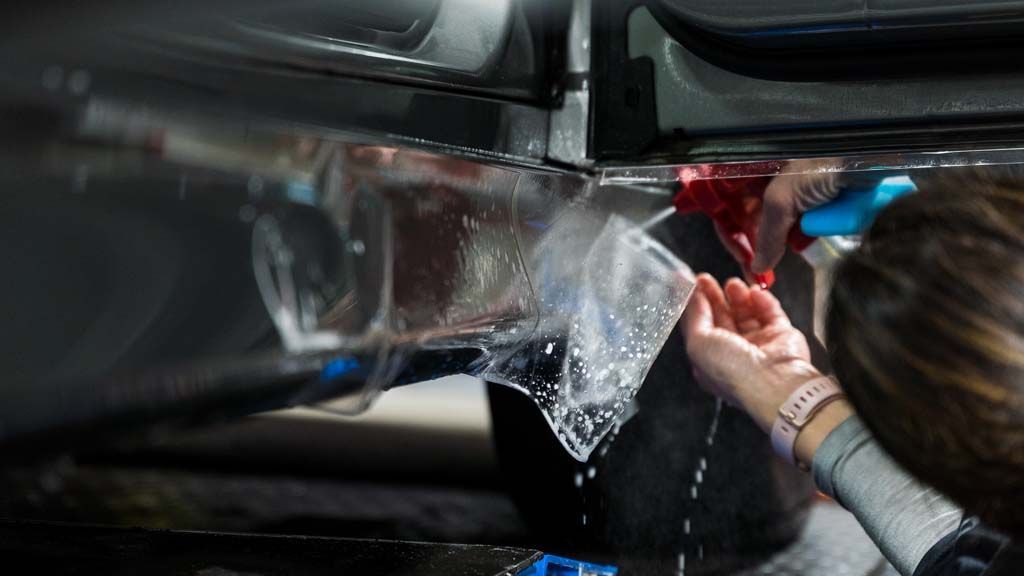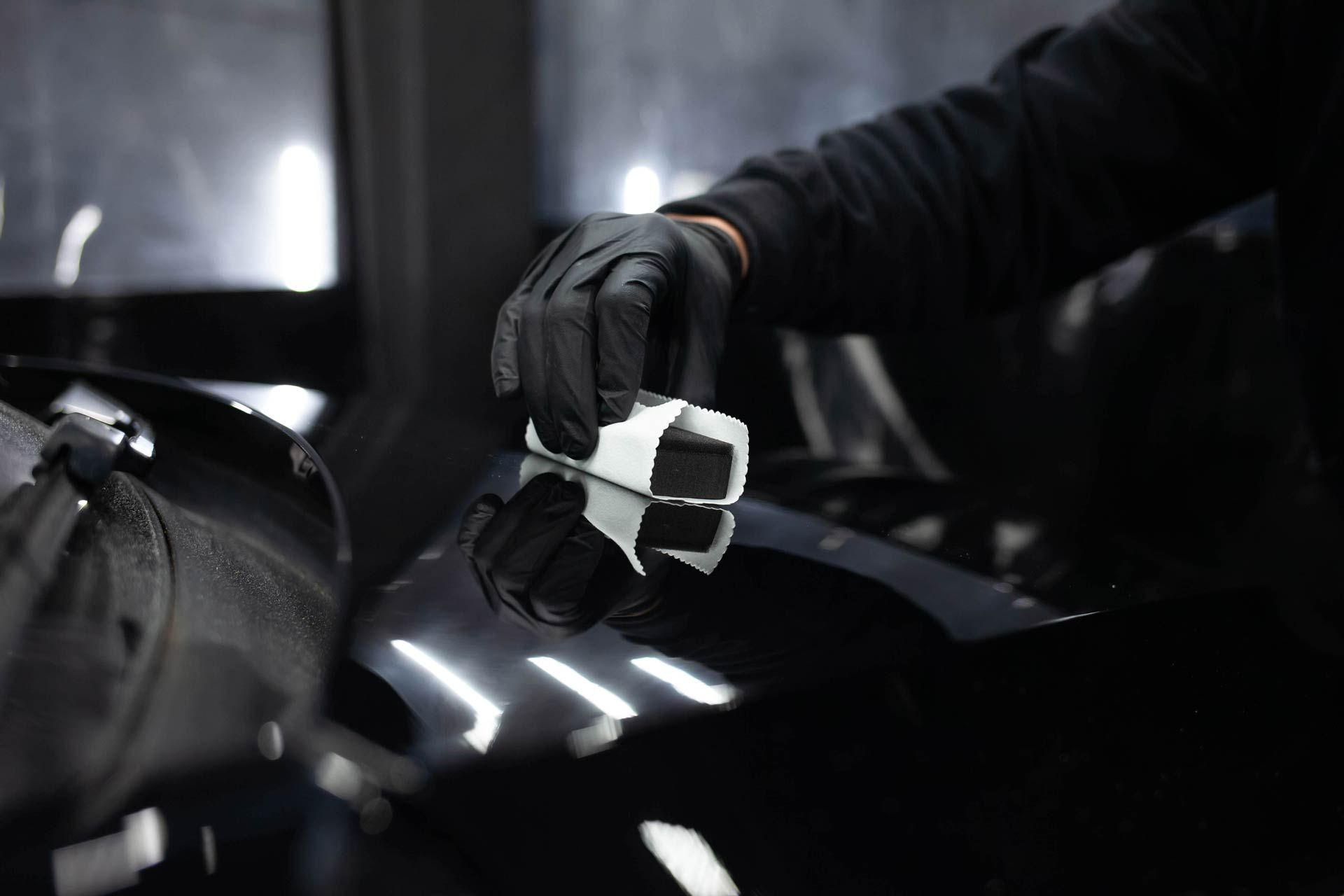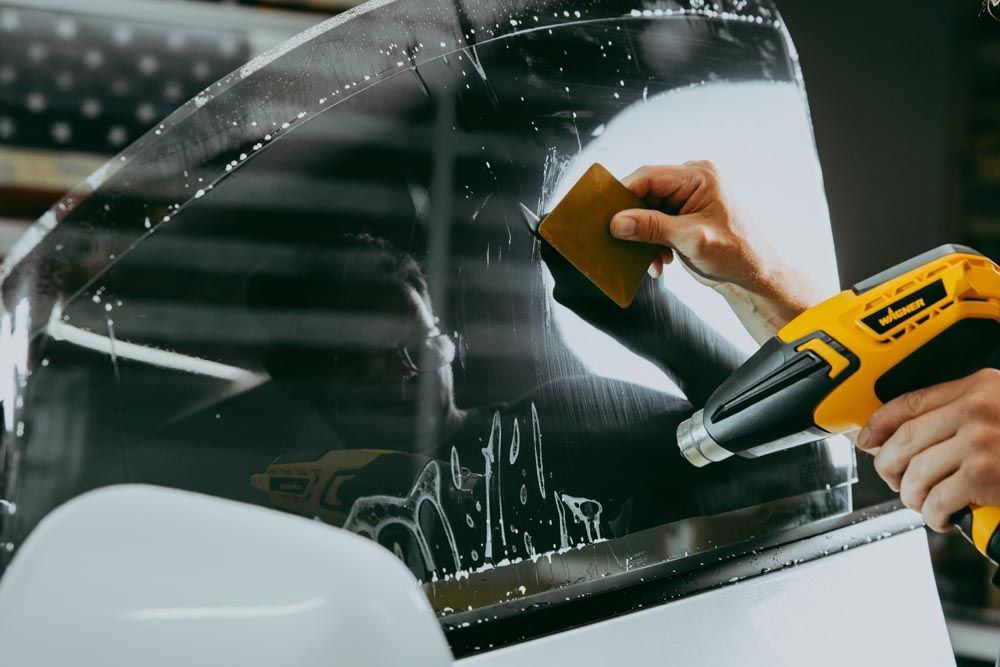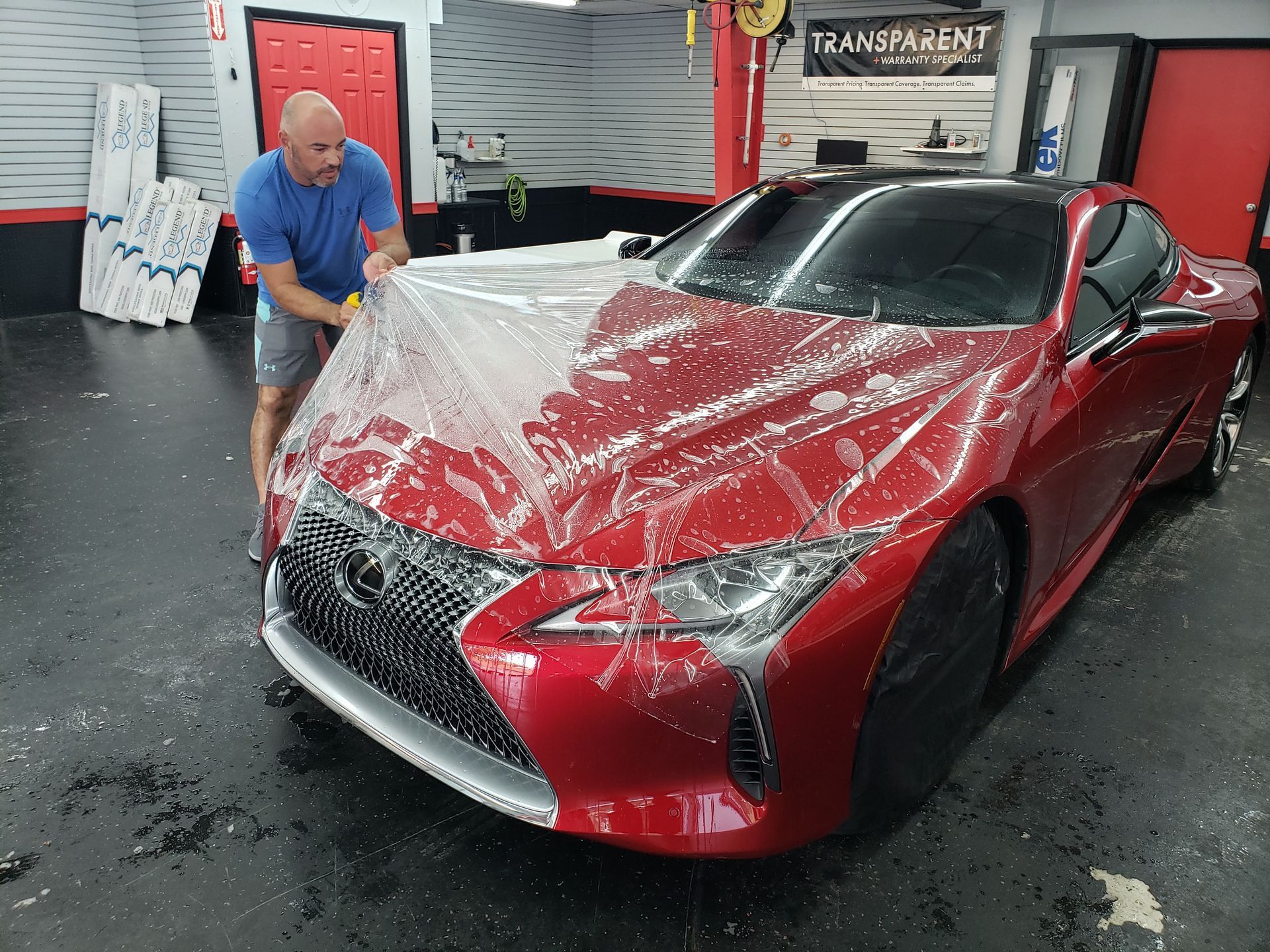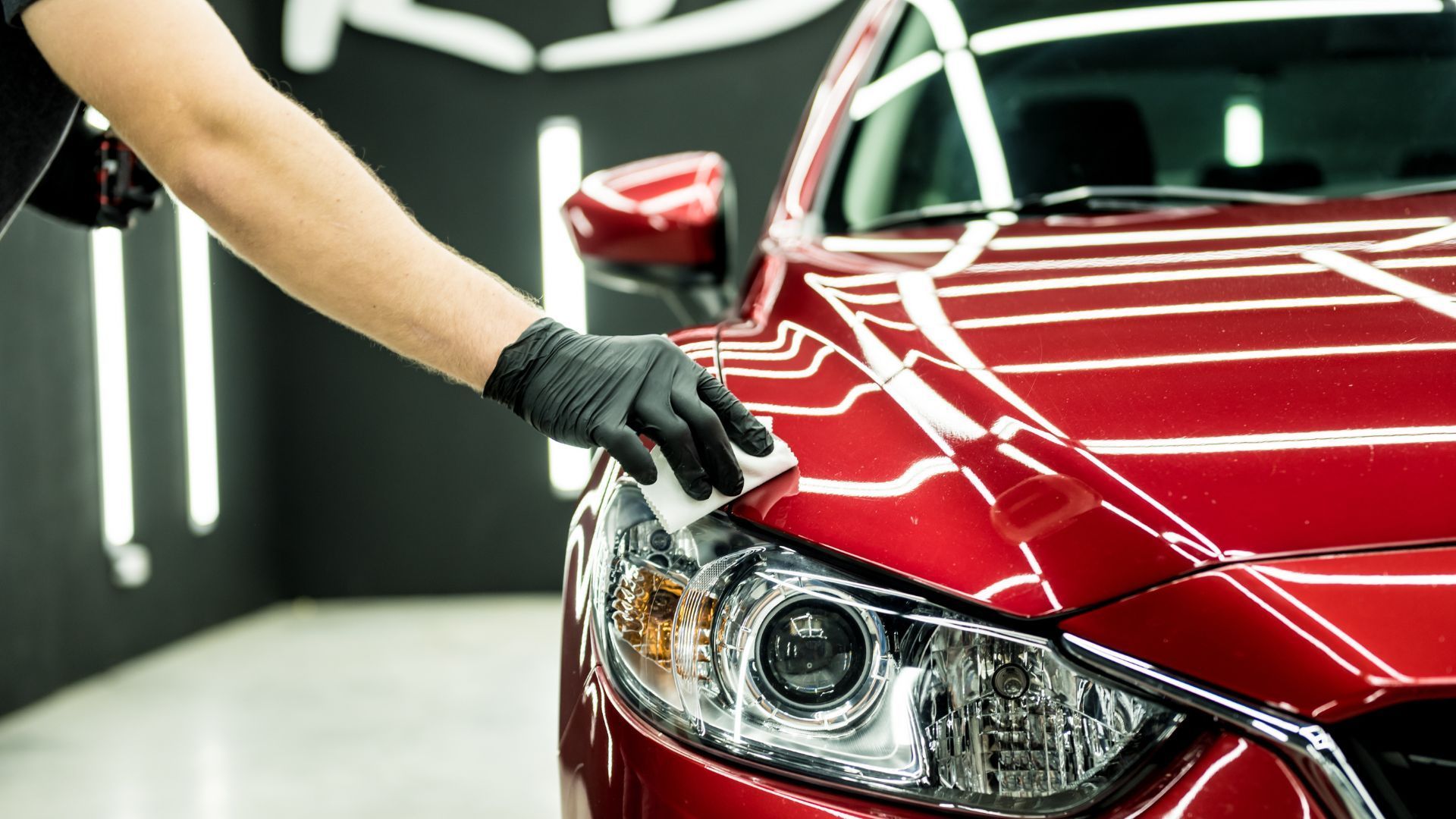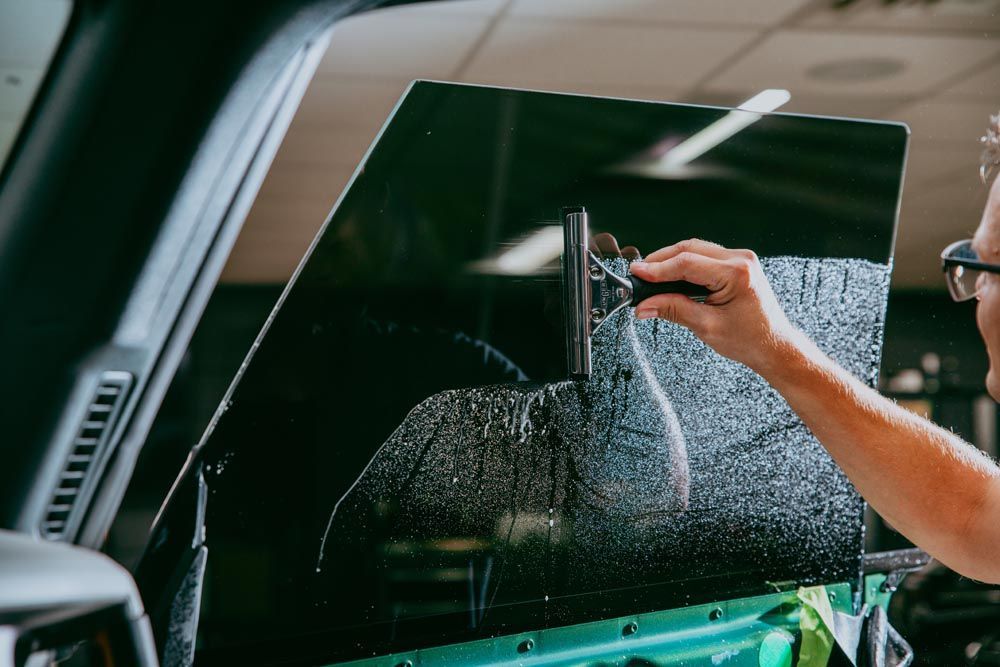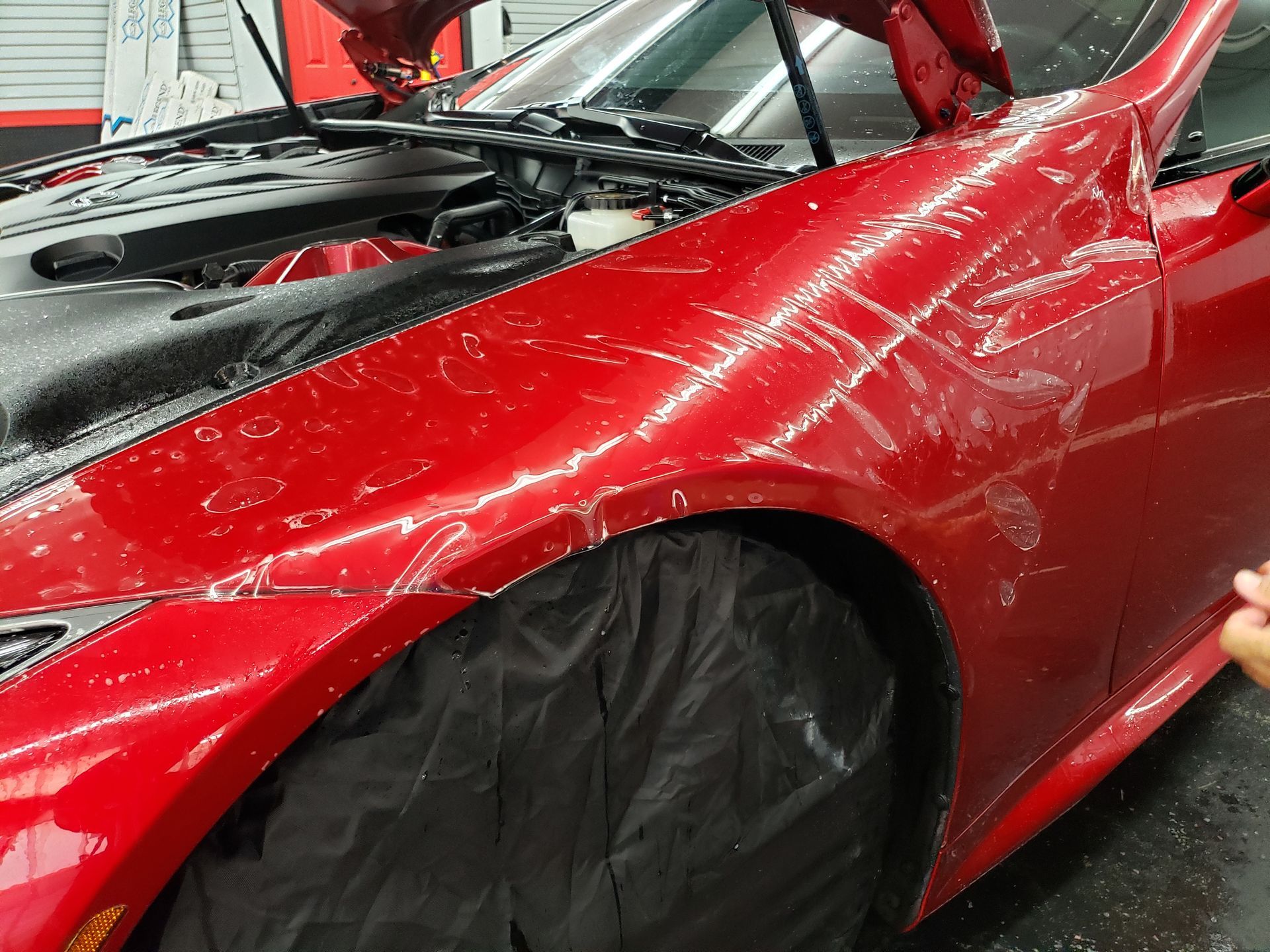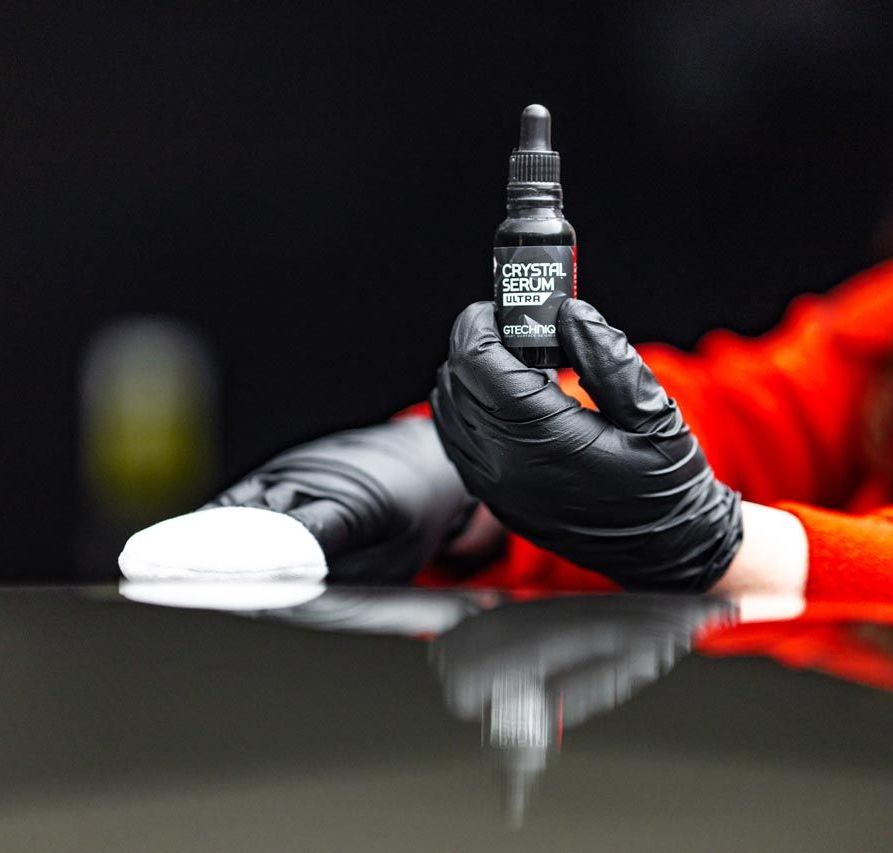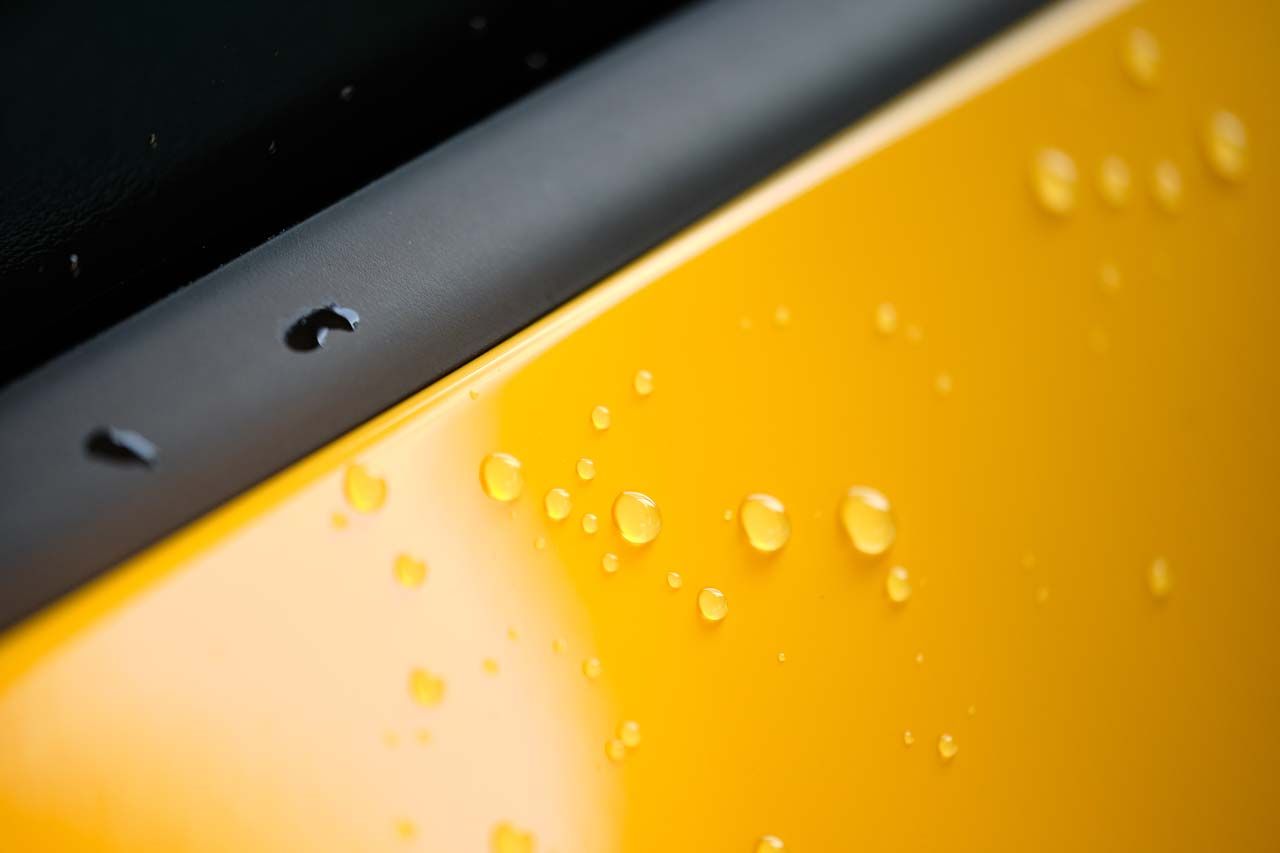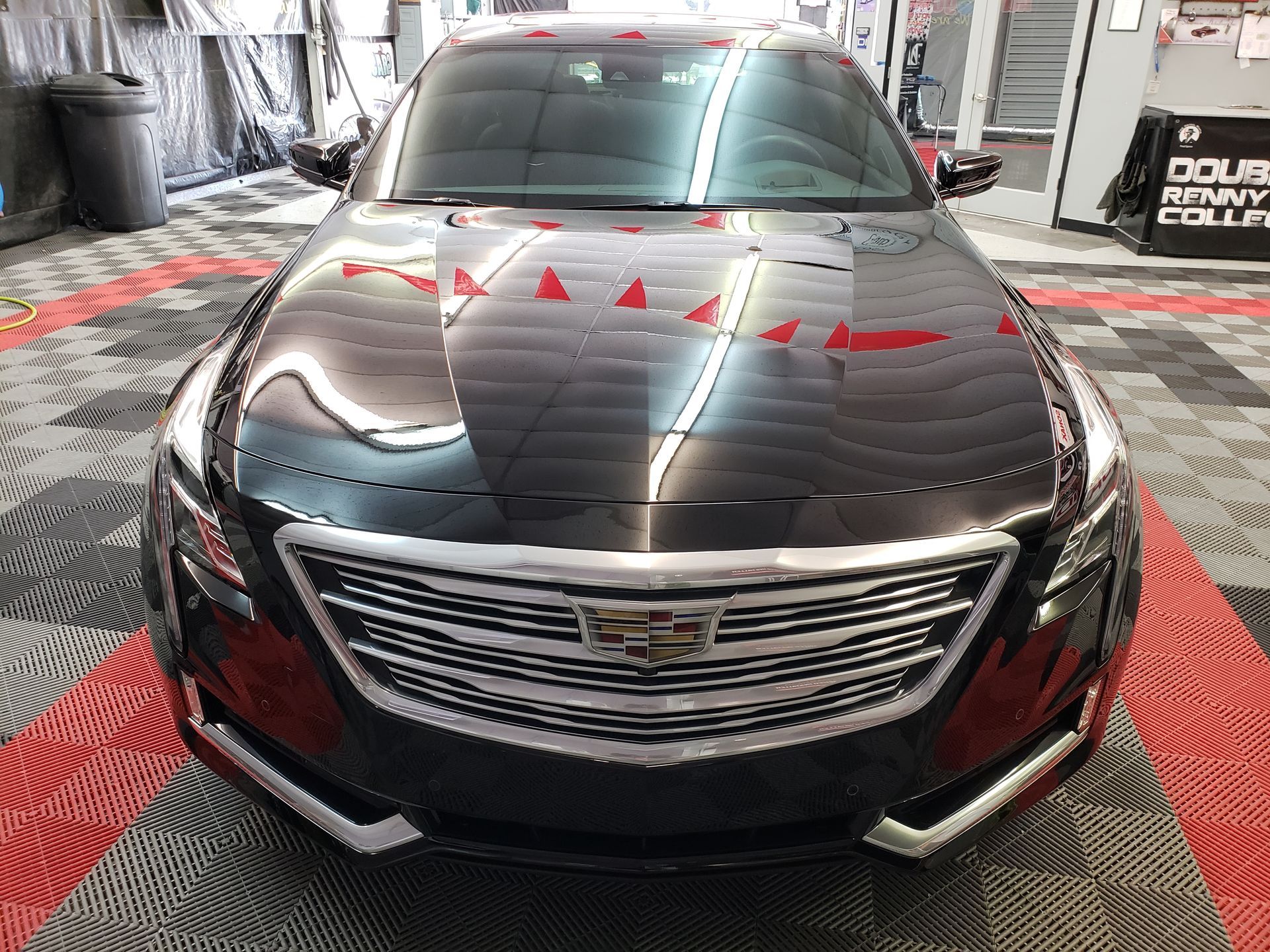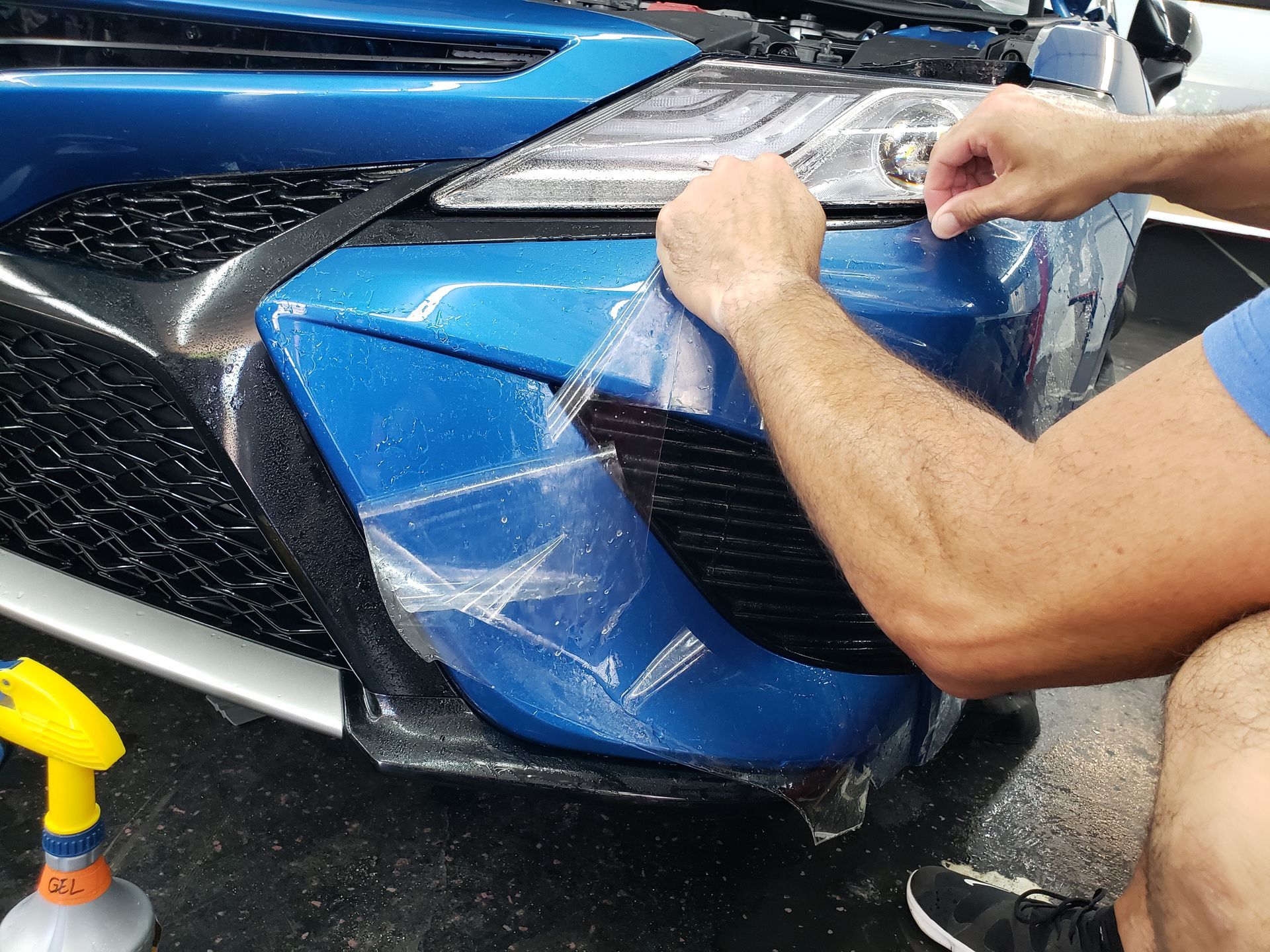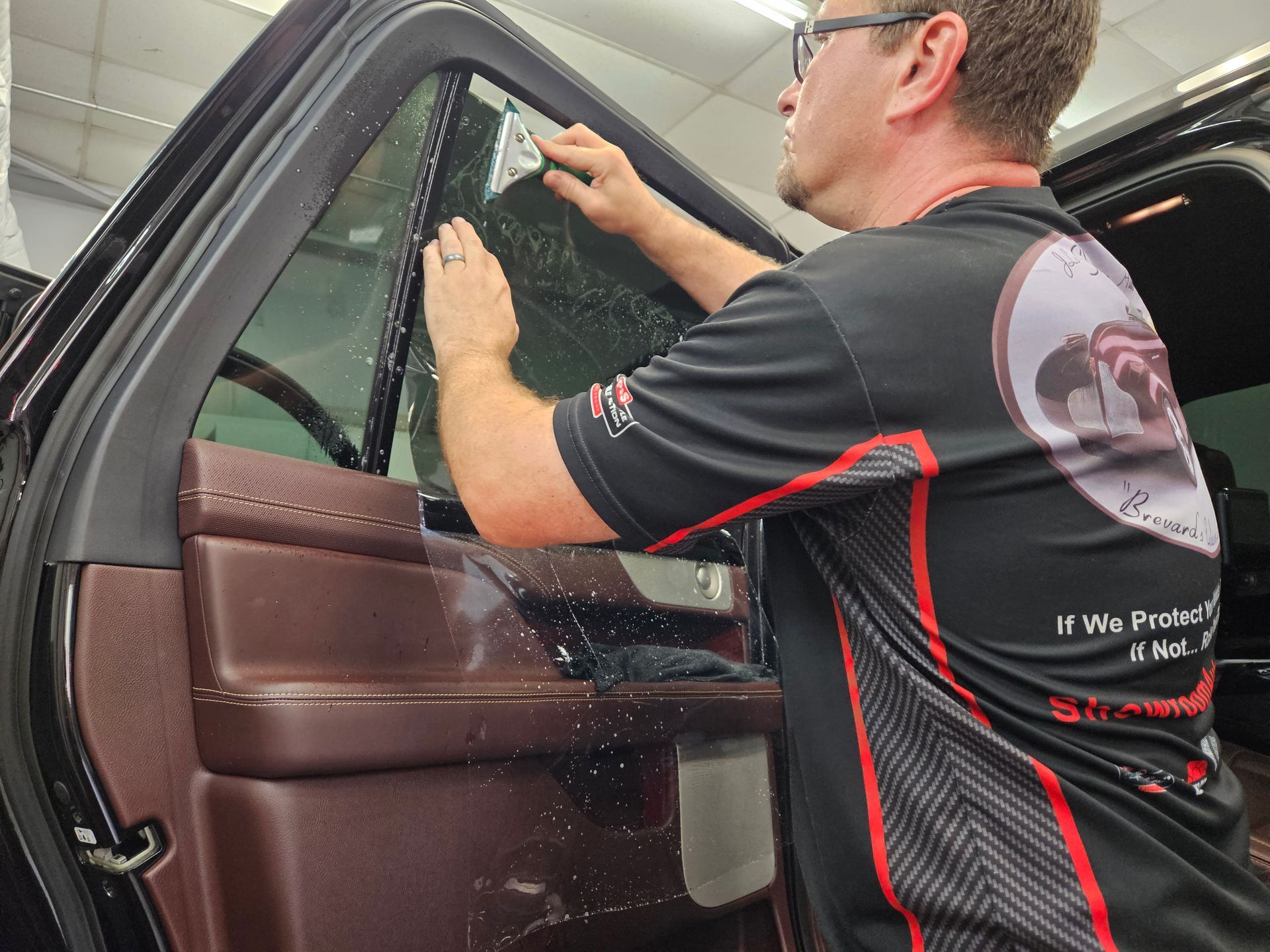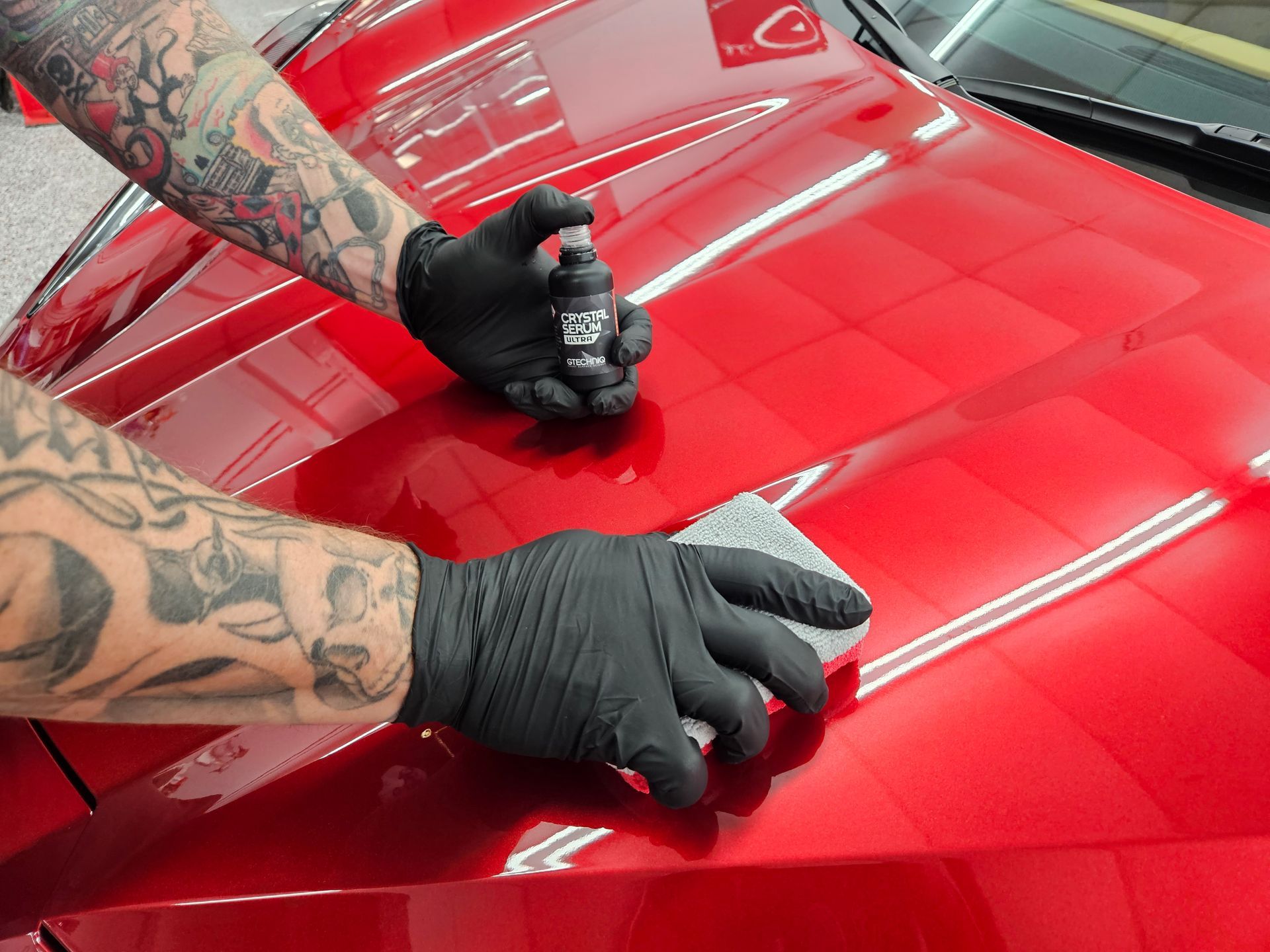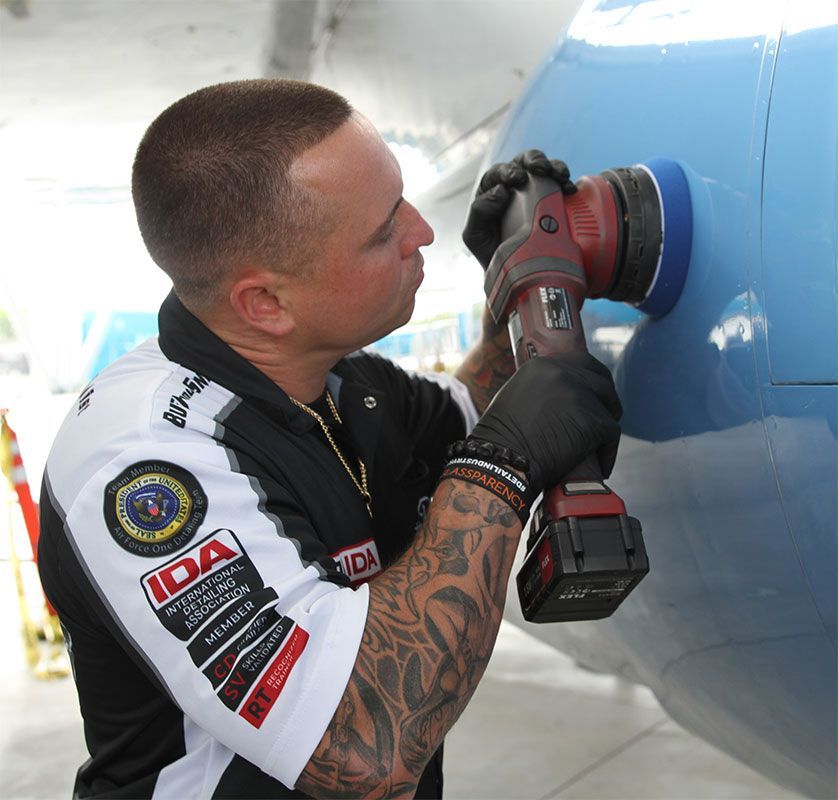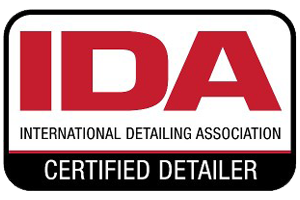Debunking Common Myths About Ceramic Coating: Separating Fact from Fiction
Ceramic coatings, liquid polymers you apply to your vehicle's exterior, are a great way to safeguard your ride. They bond with factory paint, creating a protective layer that helps keep your car looking new longer—think UV shielding, water beading, and an easier time keeping it clean. Yet, they're not magic—scratches can still occur and impacts aren't always deflected. In that shiny sheen of your freshly coated car, truth meets fiction. Now, let's uncover the facts about these ceramic myths swirling around.
JL’s Showroom Auto Salon debunks myths such as "ceramic coating makes a car scratch-proof" and "ceramic coatings make a vehicle rock chip resistant." We provide clear, expert-backed explanations to dispel these misconceptions and offer a realistic understanding of the benefits of ceramic coating for vehicles.
Factual Information About Ceramic Coating
Ceramic coatings function as a thin layer of armor for your vehicle, shielding it from the wear and tear of everyday life. They chemically bond with the factory paint, providing a semi-permanent layer of protection that typically lasts for 2-5 years. This added defense guards your vehicle against external elements such as road salt, bird droppings, and UV rays, which can lead to fading and discoloration. The application process involves skillfully laying down a liquid polymer coating on the exterior of the vehicle. This coating then cures to form a hard shell over the paint. The result? An ultra-durable finish with a remarkable water contact angle of 110-120 degrees causes water to bead up and roll off the surface easily. It doesn't just repel water but also other environmental contaminants like dust and dirt.
Additionally, it makes regular cleaning more efficient as the dirt doesn't stick as strongly to the treated surface, making maintenance easier for car owners. Despite their many benefits, it's essential to understand that ceramic coatings are not scratch-proof. While they offer resistance to environmental contaminants, they are not impervious to all types of impacts, such as scratches, swirl marks, or rock chips. It's crucial to set realistic expectations about their protective capabilities. Understanding these facts about ceramic coatings gives us a clearer picture of what they can and cannot do.
Debunking Common Ceramic Coating Myths
Ceramic coating is often portrayed as a miraculous solution for car paint protection, but several myths persist about its capabilities. Let's take a closer look at some of these myths and separate fact from fiction.
Myth: Ceramic Coating is Scratch-Proof
A common misconception about ceramic coatings is that they provide scratch resistance, rendering your vehicle impervious to any form of scratching. While it's true that ceramic coatings offer resistance to environmental damage, they are not invincible against all types of impacts, including scratches. scratches from a key or rock can still penetrate the coating and damage the underlying paintwork. This myth underlines the importance of having realistic expectations about the protective capabilities of ceramic coatings.
It's essential to understand that while ceramic coatings offer an additional layer of defense, they are not scratch-proof in the purest sense of the term. Sharp objects and heavy forces can still cause damage. This myth likely stems from the marketing hype around ceramic coatings, emphasizing their protective qualities. However, it's crucial for consumers to recognize that while these coatings provide valuable safeguarding, they are not impervious to all potential sources of damage. Setting realistic expectations helps prevent disappointment and ensures that consumers have a clear understanding of what ceramic coatings can truly offer.
Myth: Ceramic Coating Eliminates Car Maintenance
Another prevalent myth is that applying a ceramic coating means you'll never have to wash or maintain your car again. This is far from the truth. While ceramic coatings do make cleaning easier and provide a higher level of protection against contaminants like bird droppings, tree sap, and road grime, they do not eliminate the need for regular maintenance. Ceramic coatings create a hydrophobic surface that repels water and reduces the accumulation of dirt and grime, making it easier to clean your car.
However, this doesn't mean your car will stay spotless indefinitely without any effort. Regular washing is still necessary to remove accumulated dirt and contaminants that can dull the coating's appearance and effectiveness over time. Additionally, to maintain the coating's performance and longevity, it is recommended to use proper car wash techniques and products designed for coated vehicles. Avoiding harsh chemicals and abrasive cleaning tools is essential to preventing damage to the coating.
Myth: Ceramic Coating is a Permanent Solution
Many people believe that once a ceramic coating is applied, it will last forever without any need for reapplication. While ceramic coatings are more durable than traditional waxes and sealants, they are not permanent. The longevity of a ceramic coating depends on various factors, including the quality of the product, the application process, and environmental conditions.
Typically, ceramic coatings can last anywhere from two to five years with proper care. Over time, the coating will gradually wear down due to exposure to UV rays, weather conditions, and physical abrasion. To maintain the protective benefits of the ceramic coating, periodic reapplication or professional maintenance is necessary. Understanding that ceramic coatings are not a one-time, permanent solution helps set realistic expectations and encourages ongoing care to preserve the coating's effectiveness and the vehicle's appearance.
By dispelling these myths and misconceptions, we gain a clearer understanding of what ceramic coating truly offers in terms of protection and maintenance for your vehicle.
Reality Check: Scratch Protection
When it comes to vehicle protection, ceramic coatings are often praised for their ability to resist damage from environmental and chemical contaminants due to their hardness and durability. However, it's important to understand that ceramic coatings are not completely impervious to all types of damage. This means that while ceramic coatings offer solid resistance, they are still vulnerable to scratches from sharp objects or heavy forces.
Ceramic coatings provide a strong protective layer, but they are not invincible. It's essential for users to manage their expectations about the extent of protection that ceramic coatings can offer. While they do provide a reliable shield against many forms of damage, they cannot be relied upon as an absolute solution for all types of scratches. By setting realistic expectations, users can better appreciate the protective benefits without expecting miracles. Understanding the limitations of ceramic coatings is crucial for properly caring for your vehicle.
Realistic Expectations: Ceramic Coating Limitations
Ceramic coatings provide substantial protection against various types of damage, but it's crucial to understand that they aren't a magical shield. They are not impervious to scratches and are still susceptible to harm from heavy objects or forces. While they offer excellent resistance to environmental and chemical damage, they are not impervious to all types of impacts, such as scratches from a key or rock. It's important to have realistic expectations about their protective capabilities. Moreover, it's imperative for vehicle owners to recognize that not all vehicles benefit equally from ceramic coatings. The type of vehicle, its usage patterns, and the material of the vehicle are all factors that can influence the efficacy of ceramic coatings.
There is a common misconception about ceramic coatings making cleaning easier. While they do make it easier to remove dirt with regular maintenance, they don't eliminate the need for regular washing or careful cleaning practices. Accumulated contaminants can still damage the coating and paintwork over time, which is why regular care and maintenance remain essential. To illustrate, think of ceramic coatings as providing an added layer of armor for your vehicle. Just like a medieval knight's armor could protect against many dangers but was not invincible to all weapons, ceramic coatings offer substantial protection but have limits.
By having realistic expectations about the abilities of ceramic coatings, vehicle owners can better care for their coated vehicles and avoid disappointment caused by misconceptions. Understanding these limitations helps users make informed decisions about whether a ceramic coating is the right choice for their specific needs and circumstances.
DIY vs. Professional Application Techniques
When it comes to applying ceramic coating, you might be questioning whether to do it yourself or to hire a professional. Let's look at the differences between the two options.
If you're considering cost, then yes, a DIY application can be a more budget-friendly option. However, it's important to understand that achieving desirable results with a DIY ceramic coating requires meticulous preparation and application. Imagine this as akin to painting a room in your house. The results can vary widely depending on how well-prepared the surface was, the quality of paint used, and the expertise of the person applying it. The same holds true for ceramic coatings. On the other hand, professional application ensures proper surface preparation, even coverage, and long-lasting results.
Factors to Consider
- Time: DIY application can be time-consuming, especially when factoring in the meticulous preparation and multiple layers needed for effective coverage. On the other hand, professional detailers have the experience and tools to expedite the process.
- Expertise: Do you have the necessary skills to ensure proper surface preparation and application? Professional detailers are trained and experienced in handling ceramic coatings.
- Cost: While DIY applications may seem more cost-effective upfront, considering the time and effort involved along with potential mistakes that may require reapplication, professional services could provide better value in the long run.
- Longevity: Professional applications often come with a guarantee or warranty, providing assurance of long-lasting results. This is an aspect that should not be overlooked when comparing DIY with professional services.
In essence, while DIY application of ceramic coatings can be an enticing prospect due to its cost-effectiveness, it's crucial to weigh it against the level of expertise, time commitment, and potential long-term results. If you're seeking optimal outcomes without the added complexity of self-application, opting for professional services might be a more favorable choice. By carefully weighing these factors and considering your individual circumstances, you can make an informed decision on whether to pursue a DIY approach or enlist professional services for applying ceramic coatings to your vehicle.
Leading Ceramic Coating Installers in Melbourne, FL
Discover the pinnacle of automotive care at JL’s Showroom Auto Salon, the unrivaled experts in
ceramic coating installation in Melbourne, FL. With an unmatched dedication to quality and precision, our team delivers unparalleled protection and enhancement for your vehicle's exterior. Say goodbye to worries about fading or dullness and embrace the enduring brilliance of ceramic coatings. Trust JL’s Showroom Auto Salon to safeguard your investment and ensure your ride maintains its showroom shine for years to come. Experience excellence in automotive detailing—book your appointment today! You can also call us at
(321) 723-6976 to get started!
